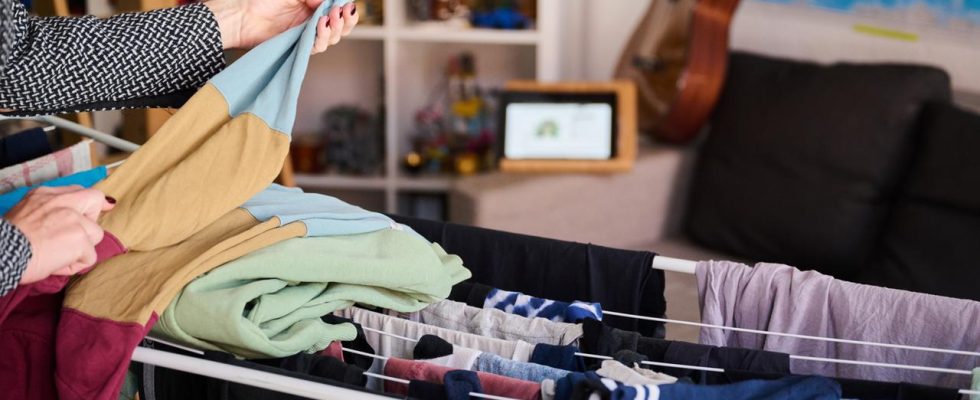Housekeeping, childcare, care – unpaid work that, according to a study, is still largely carried out by women. This means that on average women work more than men overall.
According to a study, women in Germany continue to do significantly more unpaid work than men. On average, women spend around 44 percent more time on so-called care work. “This means that women do an average of one hour and seventeen minutes more unpaid work a day,” said the President of the Federal Statistical Office, Ruth Brand. Ten years ago there was 52 percent more unpaid work. The gap is getting smaller, says Brand – “but it is still considerable.”
The basis is the 2022 time use survey. Every ten years, the Federal Statistical Office examines how people divide their time; the current study focuses on the distribution of unpaid and paid work. Unpaid work refers, for example, to household management, childcare, caring for relatives and social engagement as well as supporting people outside of one’s own household.
Lots of classic housework
According to the study, women work more overall than men. On average, they spend almost 45.5 hours a week working, almost 30 hours of which are unpaid. The situation is different for men: they spend almost 21 hours, less than half of their 44-hour week on unpaid work.
Almost half of women’s unpaid work consists of traditional housework such as cooking, cleaning and washing laundry. According to the results, women invest almost twice as much time as men in childcare. Mothers would like to be more involved in paid work: one in four working mothers said that they would like to have more time for their work. In contrast, one in four fathers would prefer to spend less time working and instead focus on other things.
“This division of roles, in which mothers primarily take care of the household and the children and fathers are the main workers, has hardly changed over time,” explained Brand. The study was last carried out in 2012/2013.
“Clearly too much”
Federal Minister for Family Affairs Lisa Paus described women’s extra work as “significantly too much”. One day before Equal Care Day, which is supposed to draw attention to unequal distribution every four years on February 29th, the minister explained that fair compensation for unpaid care work was an important concern for her. For women, inequality usually means lower salaries, fewer professional opportunities and precarious retirement security.
The Federal Statistical Office records how people in Germany spend their time every ten years. In the 2022 survey, around 10,000 households with 20,000 people aged ten and over were asked on a voluntary basis on three specified days (including two weekdays and one day on the weekend) to record their time spent in ten-minute increments in a time diary or in a time diary Capture the app. The current survey is the fourth since the beginning of the 1990s.
Less travel times
People are not only asked how they actually use their time, but also how they feel about it and what they want. For the first time, loneliness was asked. One in six people over the age of ten said they often felt lonely. Loneliness is most common among 18 to 29 year olds: one in four often feels lonely. From the researchers’ point of view, it is obvious to see this result in the context of the corona pandemic.
In this context, it should also be noted that the time spent on paid work, including travel times, has decreased compared to the survey ten years ago, by an average of 18 minutes per day. This could already reflect the effects on professional work as a result of the pandemic, for example through more home offices, explained Brand. However, it will only be possible to say whether this is a long-term development with the next time use survey in probably ten years.

